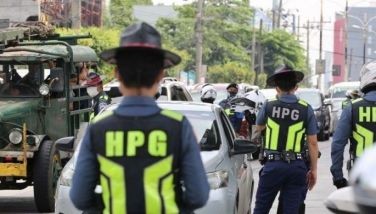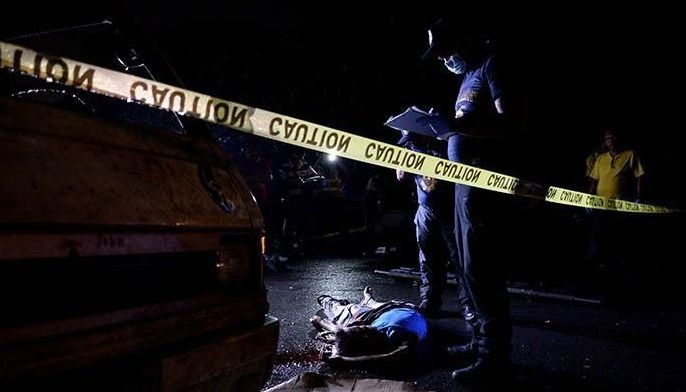#Journeyto30 Forgiving and forgetful
MANILA, Philippines - Apo went home to a chanting crowd of 5,000, mostly women and children, gathered outside Laoag International Airport, as The Philippine STAR described in its Sept. 7, 1993 headline.
As the plane bearing his face and the words “I am a Filipino” taxied, cultural dancers performed the death rituals of the Ilocanos and other indigenous people of the region. A woman wearing a black veil broke a clay pot as a ritual to drive away evil spirits.
When the plane stopped, Apo’s casket was unloaded, draped in the Philippine flag. His wife Imelda let out a flood of tears and then kissed the casket. Joining her were her children, Imee, Irene and Bongbong.
Ten thousand more amassed at the Laoag Cathedral where mass was celebrated. His body was then brought to the provincial government grounds where Ilocanos got a closer look at the remains of the region’s most beloved son.
After an overnight stay, his body was brought to his hometown of Batac, where he was interred in an air-conditioned mausoleum. He would lie there in state for the next 24 years, a sort of shrine for all loyalists who dream of a Marcosian restoration.
The Marcos funeral proves how forgiving and forgetful our society is. Barely seven years after our nation toppled Marcos’ authoritarian regime in a nonviolent revolution, his body was allowed to return and became an object of worship for those who supported and justified his corrupt administration. This happened despite an estimated $10-billion loot hidden in Marcos’ escrow accounts abroad, which the Presidential Commission on Good Governance (PCGG) is still recovering.
How did we forgive and forget such an abhorrent regime that stole billions in taxpayers’ money, killed an estimated 10,000 people, abused scores of defiant Filipinos and left the economy and society in shambles?
Our predominant religiosity that espouses forgiveness and non-judgment has given us justification to dismiss the reprehensible acts of these despots. We are such prudes that we’d rather suffer from large-scale and systematic wrongdoing just so we don’t suffer eternal damnation for not forgiving our brethren.
Our religious values have also enamored us to messianic figures — “heroes and heroines” in a seemingly you-and-me-against-the-world kind of battle and are out to save the world from all its ills. These messianic figures have existed throughout our history: the Sultans, the Black Nazarene, Hermano Puli, Papa Isio, Jose Rizal and a host of modern-day church founders and leaders.
We seem to have difficulty distancing religion from our politics too, despite the Separation of Church and State clause in our Constitution. Thus, we’ve always seen politicians as messiahs who would put food on our table, lift us out of poverty and usher in real change. As if real change comes down like manna from heaven and doesn’t involve individual effort and take years, if not decades, to create.
But apart from our religiosity, the return to normalcy created an atmosphere that led to the prevailing ignorance about Martial Law. We’ve been so focused on putting food on the table that we forgot to spend time with our children to talk about what they learn in school, especially about Martial Law and the revolution. Hence, we have not imbibed them with the things in life that should matter to them, such as critical and independent thinking and concern about the social ills around them. Instead, we stress obedience, humility, good manners and submission because these values make them more manageable.
Our lack of attention to our children’s studies has allowed the education sector to succumb to complacency. Schools, with its numerous subjects, activities and perennial class suspensions, hardly have enough time to tackle history, let alone reach the topic of Martial Law in their history syllabus. And schools barely have competent teachers who can teach about this dark corner of history in an engaging way, let alone have better-equipped classrooms, or even classrooms itself.
Others don’t even have the luxury of food and school. Why bother learning about Martial Law and the revolution when you can barely put food in your stomach?
Thus, the next generations of voters we’ve produced are hardly critical about individuals running for public office. This has resulted in the entrenchment of political dynasties in our local politics and the election of celebrities, convicted plunderers, womanizers, religious bigots, the corrupt and the incompetent in different branches of government — the messiahs who wreak havoc on our nation. With this kind of electorate, it would only be a matter of time before another Marcos, or the likes of him, returns to Malacañang.
If we only looked inward, we would find that it is us who have failed our democracy, because of our flawed values, neglect and resignation, not the other way around. And our rise from this failure will not come in the form of messiahs who will pull us up, or dictators who will drag us up on our feet. We can only rise from our failure if we recognize that it is our responsibility, not someone else’s, and if we take responsibility for the consequences of our actions.
Creating a just, free, inclusive, secular and democratic nation is a 24/7 job. Wake up. Smell the coffee. Remember what you’ve already done. Remind yourself of what to do. Do what needs to be done.
- Latest
- Trending



























